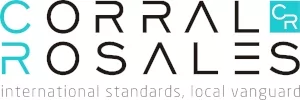With the development of Neuroscience in recent years, human beings can influence their own nervous system, especially the brain.1 Neuroscience, the branch of science dedicated to the study of the nervous system, has developed a range of technology known as neurotechnology. Neurotechnology consists of all tools and processes used to understand the functioning of the brain, as well as control or repair its functions.2 The development of this disruptive technology has opened doors to a subject that has been rather overlooked within legal spheres related to the possible effects that this technology could have on the rights of individuals.
The development of neurotechnology could pose major risks to the rights of individuals, namely privacy, free will, health, and personal data. Within this context, countries like Chile have determined the need to debate possible regulations that would limit the impact of neurotechnology, establishing ethical principles for its use and creating new rights. This constitutes the first steps toward the creation of neuro-rights, which are based on traditionally recognized rights, coupled with their impact on the neurological field.
This article aims to describe the bases and guidelines to, in the future, develop legal regulations on the subject. We begin with a theoretical explanation of the concept of neuroscience and then go on to discuss the rights involved and how they may be impacted. Reference will then be made to the new neuro-rights discussed in the literature, presenting the regulatory proposal in Chile alongside its respective criticisms. Finally, we conclude that it is necessary to regulate and create opportunities for analysis and debate on developing regulations on neurotechnology.
Neuroscience and Neurotechnology
Neuroscience studies different aspects of brain functioning and the nervous system. There are various branches of science that study neuroscience from different fields. Examples include genetics, cellular biology, anatomy, and physiology. Neurotechnology analyzes the application of various tools to study brain functioning. Such tools seek to solve physical and psychological problems that could come to affect normal brain functioning or the normal functioning of other bodily organs.
An example of neurotechnology's application is the use of "BCI," or Brain Computer Interface, which may help people who suffer from various types of paralysis. BCIs record brain waves, which are interpreted by a system and then a command is sent to a machine that performs the corresponding operation.3 BCIs improve the lives of people who suffer certain types of disabilities. The use of this technology can improve memory functions or even improve the mobility of individuals with physical disabilities.4
Alongside the benefits, these tools also present great risks to certain individual rights. Their misuse may affect individual rights such as freedom, privacy, data protection, and proper societal development. According to Spanish neurobiologist Rafael Yuste,5 within 10 years we will be using neurotechnology to read and record brain activity. As a result, using neurotechnology to change brain activity necessarily requires an ethical development of this technology.
Neurotechnology and Rights
As already mentioned, the development of neurotechnology could bring major benefits to human beings. However, if used incorrectly, neurotechnology could affect their rights. The rights to privacy, freedom of thought, no discrimination, and the right to protect personal data could be affected by the incorrect use of neurotechnology.
The creation of devices and tools arising from neurotechnology could lead to the creation of new rights. Ieca and Adorno have presented four new rights applicable to neuroscience: mental privacy, cognitive liberty, mental integrity, and the right to psychological continuity.6
Mental privacy is defined7 as the right to protect what we think and feel. Humans' most private and intimate possessions are those that reside in theire brains. Science, applying technological tools, will soon come to know what people think and feel, and eventually, be able to analyze and modify these thoughts and feelings.
Cognitive liberty goes hand in hand with mental self-determination. This right is comprised of two elements, (i) an individual's right to freely use new technologies and (ii) the protection of individuals against the mandatory use of said technologies. This right is based in the freedom of individuals to choose whether to use these technologies.
The right to mental integrity has a broader meaning that goes beyond the traditional guarantee of mental and physical integrity as an expression of adequate health. Within the framework of neuro-rights, this right, refers to those devices and tools not causing any damage to the brain or brain activity, where no unauthorized modification occurs.
Finally, the right to psychological continuity means that through neurotechnology, no type of abuse, threat, or alteration to the mental activity of a person occurs that may affect the personality or personal identity of an individual.
Chile and Neuro-Rights
Chile is a pioneer in the regulation of neurotechnology, promoting two bills on the matter, called "Neuro-Rights Bills." The first is a constitutional reform establishing that scientific and technological development must be in the service of the people. This reform was introduced through Law No. 21.3838 which modifies article 19.1 of the Political Constitution of the Republic of Chile with the following text:
"Scientific and technological research shall be at the service of the people and shall maintain respect for life and physical and psychological integrity. The law shall regulate the requirements, conditions, and restrictions for scientific and technological use in people, and shall especially safeguard brain activity, as well as the information derived from it."
In the amendment, the protection and safeguarding of brain activity during technological development is expressly included, creating the need for a regulatory framework in the event that technology affects normal functioning.
Additionally, a draft bill on the protection of neuro-rights and mental integrity9 (the "Bill"), as well as the development and investigation of neurotechnology was presented. The Bill is intended to protect physical and psychological integrity of the people in the face of development and advancement of neurotechnology.
It is important to note that the Bill recognizes the freedom of people to use any system or type of neurotechnology. To this effect, a persons consent must be free, prior, and informed, as well as provided explicitly in writing. It may be revoked at any time.
The proposed amendments have not been free of controversy. Authors such as Zuñiga, Villanvicencio, and Salas10 have openly criticized the creation of neuro-rights, noting that the risks of neurotechnology are already regulated by existing rights (privacy, freedom, data protection). For these authors, new threats can easily be regulated by allowing for an evolution of said rights, and as such, the constitutional amendment would have no legal grounds.
Conclusions
The ongoing development of neuroscience, and especially neurotechnology, will benefit human beings. Some tools, instruments, and procedures for the development of neurotechnology could cause risks to constitutionally recognized rights and international treaties. For the time being, it cannot be irrefutably determined that these risks or impacts require specific regulation for the creation or recognition of new rights. In any case, an academic debate on the impact of this technology and the need for regulation is key. Prior to developing new rights, an ethical and legal framework for the future of neurotechnology needs to be created; this is essential to ensure respect and protection of the rights and freedoms currently recognized.
Footnotes
1. Yuste, R.; Genser, J.; Hermann, S., It´s Time for Neuro-Rights (2021), Horizons. https://www.perseus-strategies.com/wp-content/uploads/2021/03/Neuro-Rights-Horizons-Winter-2021.pdf
2. N.A., (2019). Iberdrola. Neurotecnología. Recuperadoi de: https://www.iberdrola.com/innovacion/neurotecnologia
3. N.A., (2021). NeuroTech Edu. Intro to BCI. Retrieved from: http://learn.neurotechedu.com/introtobci/
4. Jamil, N.; Palmer, J. (2020). Frontiers in Neuroscience. Neural Tech. Retrieved from: https://www.frontiersin.org/articles/10.3389/fnins.2020.00692/full
5. Arancibia, F., (2022). Rafael Yuste, neurobiólogo precursor del proyecto BRAIN: "Hay una línea roja que no se debe cruzar: el cerebro no se toca, es la esencia del ser humano" Retrieved from: https://interferencia.cl/articulos/rafael-yuste-neurobiologo-precursor-del-proyecto-brain-hay-una-linea-roja-que-no-se-debe
6. Ienca, M. Y Andorno, R. (2021) Hacia nuevos derechos humanos en la era de la neurociencia y la neurotecnología. Retrieved from: https://www.redalyc.org/journal/3400/340067606006/html/#redalyc_340067606006_ref12
7. Maldonado, P., (2019), Neuroderechos: la discusión por la privacidad mental y el control del cerebro ya está aquí. Universidad de Chile. Retrieved from: https://www.uchile.cl/noticias/156392/neuroderechos-la-discusion-por-la-privacidad-mental
8. Law 21.383
9. Senado República de Chile. Boletín 13828-19. Retrieved from: https://www.senado.cl/appsenado/templates/tramitacion/index.php?boletin_ini=13828-19
10. Zuñiga, A; Villavicencio, L; Salas, R. (2020). ¿Neuroderechos? Razón para no legislar. Ciper. Retrieved from: https://www.ciperchile.cl/2020/12/11/neuroderechos-razones-para-no-legislar/
Originally published 26 April, 2022
The content of this article is intended to provide a general guide to the subject matter. Specialist advice should be sought about your specific circumstances.



